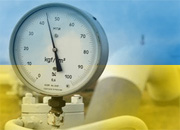In an interview with the Financial Times, he made clear that there were limits to the pro-Russian orientation of Viktor Yanukovich, elected in February as Ukraine’s president in place of the pro-western Viktor Yushchenko.
Mr Gryshchenko was speaking in Brussels less than two weeks after Vladimir Putin, Russia’s prime minister, surprised Ukraine’s authorities by proposing a merger between Gazprom and Naftogaz, the Russian and Ukrainian state-run energy companies.
Such a merger would amount to little more than a Gazprom takeover of Naftogaz, potentially giving Moscow control over the Ukrainian pipelines through which the European Union receives 80 per cent of its Russian gas imports, according to energy analysts.
“We’ve said we will look into it, but obviously there would be major difficulties in full integration of the two companies. We are not about to abandon control of Naftogaz,” Mr Gryshchenko said.
“We would only enter into agreements that would serve our interests, and that would have built-in guarantees of control over assets that are on our territory and are an important element of our overall economic development,” he said.
The minister said, however, that Ukraine’s new government regarded the restoration of good relations with Russia as a top priority, because Mr Yushchenko’s foreign policy had caused frictions in the post-Soviet area as well as big disruptions in the gas trade between Russia, Ukraine and the EU.
“Part of our concern was that the hostility towards Ukraine in Russia had started to get to the level where a majority of Russians, according to polls, saw Ukraine as some kind of a hostile state. This was very unnatural and a dangerous tendency,” Mr Gryshchenko said.
“Without friendly, good, predictable relations with Russia, we will not be successful in our relationship with the EU. That’s what Ukrainian foreign policy is based on today. We believe this is an approach that is very practical and pragmatic,” he said.
EU diplomats said they appreciated that Ukraine had always been likely to rebalance its relationship with Russia after the Yushchenko era, but nonetheless expressed concern about the extent of the “tilt” towards Moscow.
They pointed, in particular, to a deal in April under which Ukraine will let Russia’s Black Sea fleet extend its presence in Ukraine’s Crimea peninsula until 2042 in return for a 30 per cent cut in the price of Russian gas imports.
Mr Gryshchenko said Ukraine had signed the agreement because the import prices set under the Yushchenko government had been highly disadvantageous to Ukraine. “We couldn’t balance the budget, and that wouldn’t be acceptable to the International Monetary Fund. We were under pressure of time,” he said.
"Financial Times"
13 Февраля 2026 | пятница | 13:02


